The best and worst sleep positions for your health
Should you snooze on your side, back, or stomach?
Updated on April 15, 2024
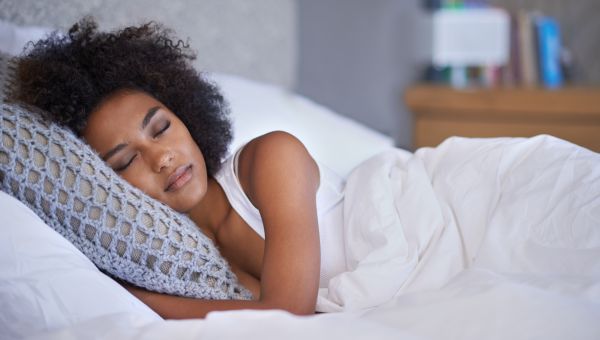
It depends on your body, but the way you sleep at night can have a huge impact on your health. For example, sleeping on your back may keep your head, neck, and spine in a comfortable, neutral position, while sleeping on your left side can reduce acid reflux.
On the hunt for the best sleep position, we took a look at the options, and the pros and cons of each. Here’s what we found.
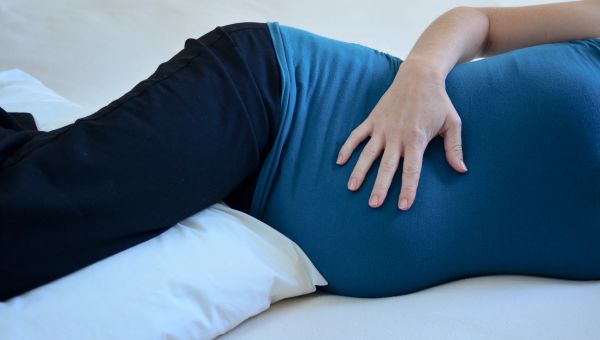
Side or Fetal Position
The most popular way to sleep is on your side, with your legs and torso straight, or in a fetal position, with your knees a bit more curved. In fact, it’s estimated that more than half of adults slumber this way. (We have to wonder if it’s because that’s how we slept as infants.)
Sleeping on one side may be a great position for people who snore, since it elongates your spine and helps keep your airways clear. Those with gastroesophageal reflux disease may benefit if they sleep on their left side, as it can reduce reflux.
The side position is especially helpful to pregnant people. Sleeping this way can encourage good blood flow throughout your body and to the growing fetus. It can also keep your uterus from putting pressure on the major blood vessel that returns blood back to your heart.
How to do it: While sleeping on one side, keep your torso and legs straight as you drift off. To sleep in a fetal position, instead of curling into a tight ball (which could cause backaches and joint soreness), try to keep your body a little bit straighter, and your neck and knees less bent. You can also put a pillow in between your knees if you notice any discomfort in your hips.
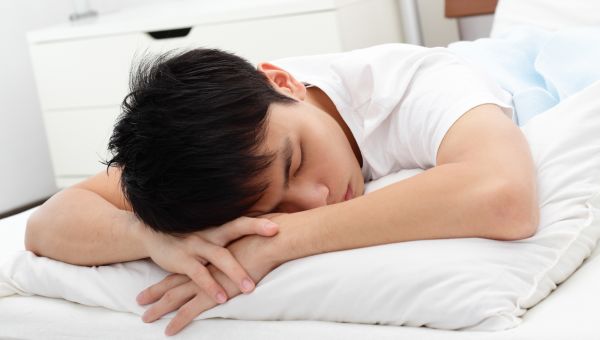
Stomach
You may find sleeping on your stomach will make your partner happy because you won’t snore as much, but other than that, there aren’t a lot of benefits to this position. It may put unnecessary pressure on your muscles and joints. It can also aggravate nerves in your back and neck, which can cause pain.

Back
According to the National Sleep Foundation, sleeping on your back is the best position for many people. For some, it allows the head, neck, and spine to rest in a neutral spot, minimizing the amount of pressure on those areas and potentially reducing pain.
However, if you have sleep apnea, a disorder where you experience pauses in breathing for at least 10 seconds, resting on your back may make breathing problems worse. This is because the extra body tissue around your neck can weigh down on your airway, making it harder for air to move through to your lungs. If you snore or have back pain, resting on your back may also give you some trouble. People who are pregnant should not sleep on their back either, as it is a risk factor for stillbirth.
How to do it: Your head and neck should be well-supported by your pillow. If you have back pain and find sleeping flat on your back isn’t comfortable, try putting a pillow under your knees to align your spine and relieve pressure.
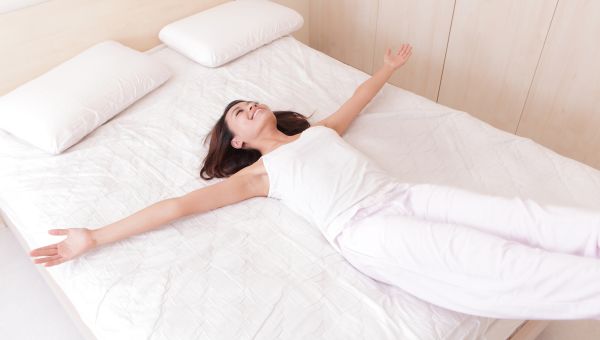
So, what’s the best sleeping position for you?
The truth is, for most people, the side sleeping position is the healthiest. But varying your form isn’t the worst thing in the world. In fact, it may help prevent you from developing problems due to prolonged pressure, like blood flow issues, sores, and pain. For example, when you snooze on your right side, your right shoulder may begin to hurt after awhile. And if you doze on your back, you may notice backaches over time.
Worried about how you're going to move positions as you sleep? Good news: Your body likely shifts positioning on its own through the night.
Bottom line? It’s best to find a sleep position that keeps your spine, neck, and shoulders in proper alignment. If you have pain each morning, you may want to reevaluate your sleep posture.

Simadibrata DM, Lesmana E, Amangku BR, Wardoyo MP, Simadibrata M. Left lateral decubitus sleeping position is associated with improved gastroesophageal reflux disease symptoms: A systematic review and meta-analysis. World J Clin Cases. 2023 Oct 26;11(30):7329-7336.
Schuitenmaker JM, Kuipers T, et al. Sleep Positional Therapy for Nocturnal Gastroesophageal Reflux: A Double-Blind, Randomized, Sham-Controlled Trial. Clinical Gastroenterology and Hepatology. Available online 14 March 2022
Skarpsno ES, Mork PJ, et al. Sleep positions and nocturnal body movements based on free-living accelerometer recordings: association with demographics, lifestyle, and insomnia symptoms. Nat Sci Sleep. 2017 Nov 1;9:267-275.
Michael Breus. What’s The Best Sleeping Position? (And Why Sleep Position and Sleep Posture Matter). The Sleep Doctor. January 7, 2022.
Cronin RS, Li M, et al. An Individual Participant Data Meta-analysis of Maternal Going-to-Sleep Position, Interactions with Fetal Vulnerability, and the Risk of Late Stillbirth. eClinical Medicine. Volume 10, April 2019, Pages 49-57.
Silver RM, Hunter S, et al. Nulliparous Pregnancy Outcomes Study: Monitoring Mothers-to-Be (NuMoM2b) Study. Prospective Evaluation of Maternal Sleep Position Through 30 Weeks of Gestation and Adverse Pregnancy Outcomes. Obstet Gynecol. 2019 Oct;134(4):667-676.
Mayo Clinic. Proper posture is important for good health. July 17, 2020.
Cleveland Clinic. Best Sleep Positions for Pain. May 25, 2023.
Cleveland Clinic. Is Sleeping on Your Stomach Bad? June 11, 2023.
Cary D, Jacques A, Briffa K. Examining relationships between sleep posture, waking spinal symptoms and quality of sleep: A cross sectional study. PLOS one. November 30, 2021.
Cary D, Briffa K, McKenna L. Identifying relationships between sleep posture and non-specific spinal symptoms in adults: A scoping review. BMJ Open. 2019 Jun 28;9(6):e027633.
MedlinePlus. Sleep Apnea. Updated March 30, 2021.
Robertson N, Okano S, Kumar S. Sleep in the Supine Position during Pregnancy Is Associated with Fetal Cerebral Redistribution. J Clin Med. 2020 Jun 7;9(6):1773.
SleepDoctor. How to Sleep With Acid Reflux (GERD). February 1, 2024.
More On


video

article
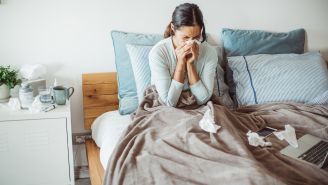
slideshow


video


video
